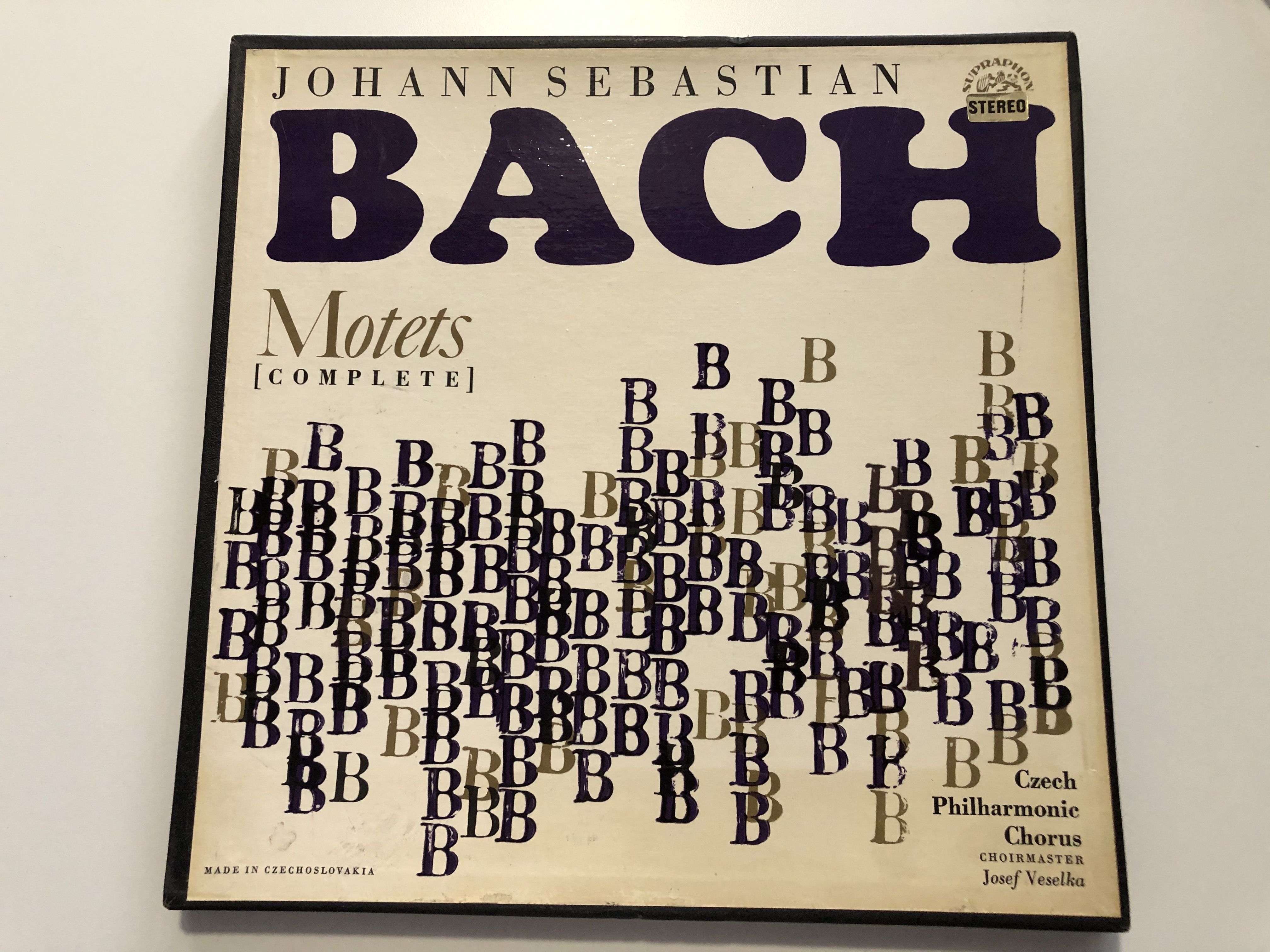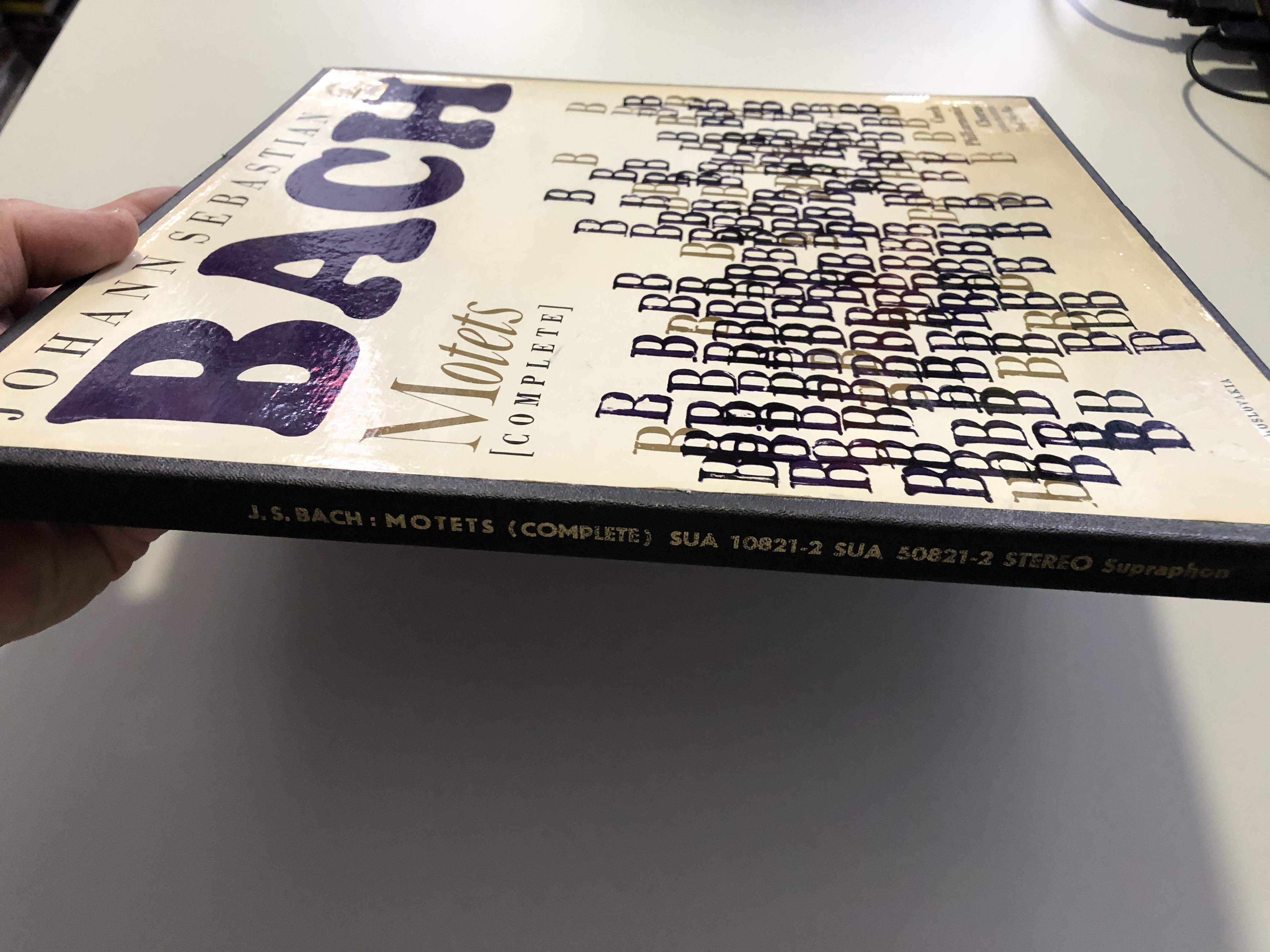Description
Johann Sebastian Bach – Motets (complete) / Czech Philharmonic Chorus, Choirmaster Josef Veselka / Supraphon 2x LP Stereo
SUA 50821-2
It is uncertain how many motets Johann Sebastian Bach composed, because some have been lost, and there are some doubtful attributions among the surviving ones associated with him. There is a case for regarding the six motets catalogued BWV 225–230 as being authenticated, although there is some doubt about one of them, Lobet den Herrn, alle Heiden. A seventh motet, Ich lasse dich nicht, BWV Anh. 159, which was formerly attributed to Bach's older cousin Johann Christoph Bach, appears to be at least partly by Bach, and if so was probably composed during his Weimar period.
BWV 228 is another motet which appears to have been written at Weimar, between 1708 and 1717, the others were composed in Leipzig. Several of the motets were written for funerals. There is some uncertainty as to the extent that motets would have been called for in normal church services - there is evidence that it was considered an archaic form. The text of Jauchzet dem Herrn, alle Welt, BWV Anh. 160 (whether or not the piece is attributable to Bach) suggests a performance at Christmas. Another possible use is a pedagogical one, Bach's biographer Johann Nikolaus Forkel suggested that the choral writing would have been useful for training Bach's young singers, and Christoph Wolff has argued that this could apply in particular to Singet dem Herrn ein neues Lied.
Bach's motets are his only vocal works that kept repertoire without interruption between his death in 1750 and the 19th-century Bach Revival. In the early 19th century six motets (BWV 225, 228, Anh. 159, 229, 227, 226) were among Bach's first printed music, after the second half of the 18th century when the only vocal music by Bach that was printed were collections of his four-part chorales.
Tracklist:
| A1 | Motets №1 BWV 225 | |
| A2 | Motets №3 BWV 227 | |
| B1 |
Motets №3 BWV 227 | |
| C1 | Motets №2 BWV 226 | |
| C2 | Motets №4 BWV 228 | |
| D1 | Motets №5 BWV 229 | |
| D2 | Motets №6 BWV 230 |



























